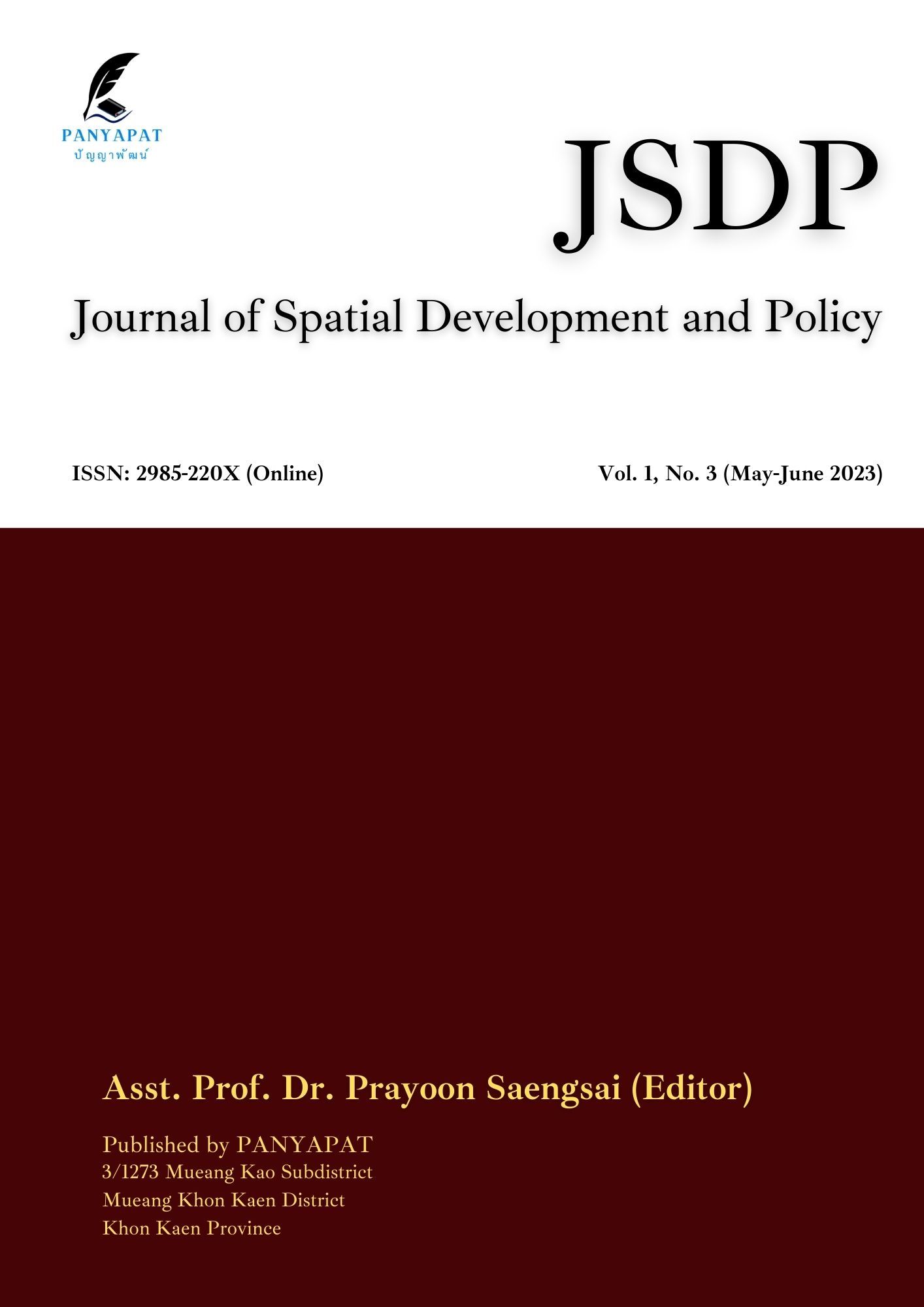Theravada Buddhist Philosophy and Consideration Epistemological Problems of Wikipedia
Main Article Content
Abstract
The purpose of this study was to find out Tharavada Buddhist philosophy’s attitudes to deliberate problem of Wikipedia epistemology. Especially, the Epistemology of testimony and proposal about how to use Wikipedia in Tharavada Buddhist philosophy’s means. Researcher employs humanities method research as documentary research followed by analysis and Philosophical criticism. It was found that there was a specifically attitudes about Tharavada Buddhist philosophy toward problem of Wikipedia epistemology. In other words, although Tharavada Buddhist admitted that Wikipedia is a source of knowledge through Transmission of Testimony but Tharavada Buddhist philosophy’s attitudes not comprehensive to supposed to Justification of testimony that because Tharavada Buddhist philosophy recognized only Reductionism. While Justification of testimony, from Wikipedia, should also means Anti-Reductionism. Tharavada Buddhist philosophy have emphasized individual Epistemic Responsibilism that given the proposal about how to use Wikipedia to get the belief of truth. The thesis founded that the Justification of testimony in case of Wikipedia should be two ways: Reductionism and Anti-Reductionism. In addition, even Tharavada Buddhist philosophy have limited to regard to Justification of testimony but it can give you favorable suggestions to use Wikipedia by means of Epistemic Responsibilism.
Article Details

This work is licensed under a Creative Commons Attribution-NonCommercial-NoDerivatives 4.0 International License.
References
กรมการศาสนา. (2514). พระไตรปิฎกภาษาไทยฉบับหลวง เล่มที่ 12 มัชฌิมนิกาย มูลปัณณาสก์. กรุงเทพฯ: กรมการศาสนา กระทรวงศึกษาธิการ.
กรมการศาสนา. (2514). พระไตรปิฎกภาษาไทยฉบับหลวง เล่มที่ 13 สุตตันตปิฎก มัชฌิมนิกาย มัชฌิมปัณณาสก์. กรุงเทพฯ: กรมการศาสนา กระทรวงศึกษาธิการ.
กรมการศาสนา. (2514). พระไตรปิฎกภาษาไทยฉบับหลวง เล่มที่ 20 สุตตันตปิฎก อังคุตตรนิกาย เอก-ทุก-ติกนิบาต. กรุงเทพฯ: กรมการศาสนา กระทรวงศึกษาธิการ.
รามิล กาญจันดา. (2547). การวิเคราะห์หลักความเชื่อในกาลามสูตร, วารสารพุทธศาสน์ศึกษา, 11(2), 4-40.
วิทย์ วิศทเวทย์. (2538). ความรู้ในทัศนะของพุทธศาสนา. วารสารพุทธศาสน์ศึกษา, 2(3), 42–52.
สมภาร พรมทา. (2539). มนุษย์กับการแสวงหาความรู้: ข้อเสนอจากพุทธปรัชญาว่าด้วยธรรมชาติและบทบาทของความรู้. วารสารพุทธศาสน์ศึกษา, 3(2), 5–28.
สมภาร พรมทา. (2560). พุทธปรัชญากับญาณวิทยา. กรุงเทพฯ: มหาจุฬาลงกรณราชวิทยาลัย.
อดิศร กรอบกระจก. (2558). การประเมินค่าทางญาณวิทยาของวิกิพีเดีย. (อักษรศาสตรมหาบัณฑิต, จุฬาลงกรณ์มหาวิทยาลัย).
อัญชลี ปิยปัญญาวงศ์. (2547). มโนทัศน์เรื่องเหตุการณ์อัศจรรย์ของเดวิด ฮูม. (อักษรศาสตรมหาบัณฑิต, จุฬาลงกรณ์มหาวิทยาลัย).
Baehr, J. (2015). Cultivating good minds. A philosophical & practical guide to educating for intellectual virtues. Long Beach. Retrieved Desember 12, 2020, from http://intellectualvirtues.org/why-should-we-educate-for-intellectual-virtues-2-2/
Boudon, L., (2005). Humanities. London: Sage.
Burge, T. (1993). Content preservation. The Philosophical Review, 102(4), 457-488.
Carter, J. A., & Nickel, P. J. (2014). On Testimony and Transmission. Episteme, 11(2), 145-155.
Dummett, M. (1994). Testimony and memory. In Matilal, B. K., & Chakrabarti, A. (Eds.). Knowing from words: Western and Indian philosophical analysis of understanding and testimony (pp. 251-272). New York: Springer Science & Business Media.
Fallis, D. (2008). Toward an epistemology of Wikipedia. Journal of the American Society for Information science and Technology, 59(10), 1662-1674.
Fallis, D. (2009). Introduction: The epistemology of mass collaboration. Episteme, 6(1), 1-7.
Gelfert, A. (2014). A Critical Introduction to Testimony. London: Bloomsbury.
Graham, P. J. (2016). Testimonial Knowledge: A Unified Account. Philosophical Issues, 26(1), 172-186.
Gunn, S., (2011). Research Methods for History. Minnesota: University of Minnesota Press.
Hardwig, J. (1991). The Role of Trust in Knowledge. The Journal of Philosophy, 88(12), 693-708.
Heersmink, R. (2017). A Virtue Epistemology of The Internet: Search engines, Intellectual Virtues and Education. Social Epistemology, 32(1), 1-12.
Lackey, J. (2006a). Introduction. In Lackey, J. & Sosa, E. (Ed.). The Epistemology of Testimony. (pp. 1–24) Oxford: Clarendon Press.
Lackey, J. (2006b). Knowing from Testimony. Philosophy Compass, 1(5), 432-448.
Lackey, J. (2011). Testimony: Acquiring Knowledge from Others. In Goldman, A., & Whitcomb, D. (Ed.). Social Epistemology: Essential Readings. (pp. 71 – 91) Oxford University Press.
Lim, S. (2009). How and why do college students use Wikipedia?. Journal of the American Society for Information Science and Technology, 60(11), 2189-2202.
Ross, A. (1986). Why do we believe what we are told?. Ratio, XXVIII(1), 69-88.
Tollefsen, D. P. (2009). Wikipedia and the Epistemology of Testimony. Episteme, 6(1), 8-24.
Wray, K. B. (2009). The epistemic cultures of science and Wikipedia: A comparison. Episteme, 6(1), 38-51.
Zagzebski, L., & Depaul, M. (2003). Introduction. In DePaul, M. R., & Zagzebski, L. T. (Ed.). Intellectual virtue: Perspectives from ethics and epistemology (pp. 1-12). Oxford: Clarendon Press.

